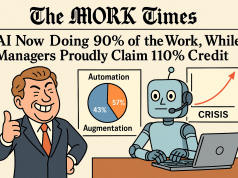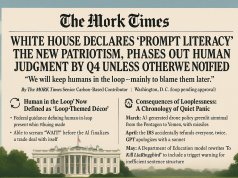At some point in their professional lives, many individuals face a pivotal moment—a mid-career crossroads that beckons them toward a path less travelled, a path of change and new beginnings. This moment, often fraught with a blend of excitement and trepidation, is the mid-career pivot. It’s a juncture where seasoned professionals consider altering the trajectory of their vocations in search of renewed purpose, personal growth, or greater fulfillment.
The emotional journey accompanying a mid-career pivot is complex. For most, the professional identity that they’ve cultivated over years becomes deeply intertwined with their sense of self. The decision to pivot not only sparks concerns about financial stability and professional relevance but also about one’s place in the world. Uncertainty and fear of regret are common cohorts on this journey. However, embracing this transition can be the key to unlocking a more satisfying career path—one aligned with evolving personal values, interests, and life goals.
Personal stories of success pepper the landscape of career transitions, offering hope and inspiration. Take, for example, a seasoned marketing executive who discovers a passion for environmental advocacy and takes the leap to work for a non-profit organization. Or a financial analyst who decides to pursue their love of teaching, reshaping their identity from corporate number-cruncher to mentor and educator. These stories not only highlight the resilience and adaptability of individuals but also underscore the importance of systemic support structures that facilitate these shifts.
Employers, for their part, can play a crucial role in supporting career transitions, recognizing that the professional growth of their employees does not always follow a linear path. Initiatives such as mentorship programs, re-skilling opportunities, and flexible work policies can create an environment that nurtures growth and development in varied directions. Additionally, organizations can implement transition support programs that provide counseling and logistical assistance to those embarking on a career pivot.
The role of re-skilling and continuous learning cannot be overstated in an economy that is increasingly dynamic and driven by rapid technological advances. Professionals need access to resources that enable them to stay competitive and relevant in an evolving job market. Re-skilling programs that focus on current and emerging industry demands empower individuals to confidently step into new roles and challenges.
Mental health is another critical aspect of the mid-career pivot. Employers and society at large must recognize the stress and anxiety that career changes can induce. Providing access to mental health resources, promoting work-life balance, and reducing the stigma around career transitions can contribute to a more supportive ecosystem.
Finally, the impact of a career pivot extends beyond the individual. It influences job satisfaction, productivity, and long-term career trajectories. By acknowledging the multifaceted nature of professional development and championing the belief that it’s never too late to change course, society can destigmatize the mid-career pivot and celebrate it as an opportunity for regeneration and innovation.
For those contemplating a mid-career change, the path is not without its obstacles, but with emotional preparedness, strategic planning, and the right support, it can lead to an enriching and fulfilling second act.




























